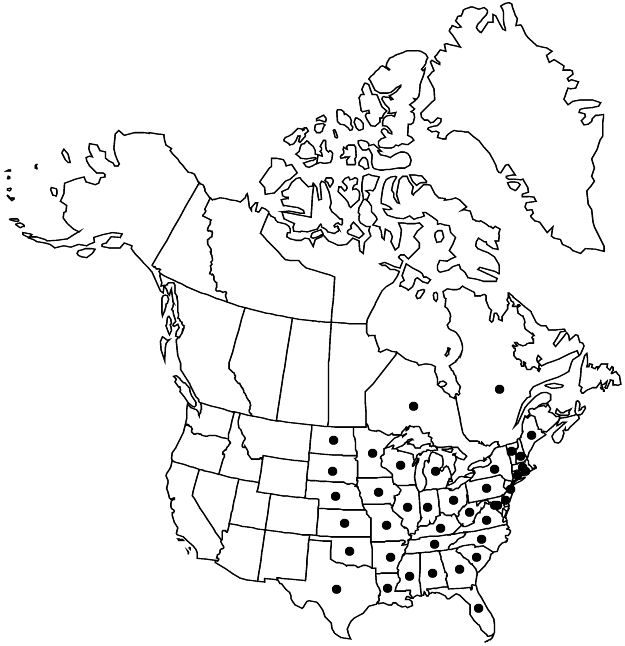Difference between revisions of "Sicyos angulatus"
Sp. Pl. 2: 1013. 1753.
FNA>Volume Importer |
imported>Volume Importer |
||
| (3 intermediate revisions by 2 users not shown) | |||
| Line 37: | Line 37: | ||
-->{{#Taxon: | -->{{#Taxon: | ||
name=Sicyos angulatus | name=Sicyos angulatus | ||
| − | |||
|authority=Linnaeus | |authority=Linnaeus | ||
|rank=species | |rank=species | ||
| Line 52: | Line 51: | ||
|publication year=1753 | |publication year=1753 | ||
|special status=Endemic | |special status=Endemic | ||
| − | |source xml=https:// | + | |source xml=https://bitbucket.org/aafc-mbb/fna-data-curation/src/2e0870ddd59836b60bcf96646a41e87ea5a5943a/coarse_grained_fna_xml/V6/V6_37.xml |
|genus=Sicyos | |genus=Sicyos | ||
|species=Sicyos angulatus | |species=Sicyos angulatus | ||
Latest revision as of 22:20, 5 November 2020
Stems moderately to densely villous-puberulent, hairs glandular-viscid, mixed with stipitate-glandular hairs. Leaves: petiole 1–7(–10) cm; blade orbiculate-angulate to broadly ovate-angulate or shallowly (3–)5-lobed, 4–12 × 6–17 cm, terminal lobe deltate-acuminate to ovate-acuminate, basal sinus narrow to broad, margins evenly and minutely green-apiculate-mucronulate, ± ciliate, hairs gland-tipped, surfaces hispidulous-hirsute; proximal pair of lateral veins divergent from edge of basal sinus. Inflorescences: staminate 10–21(–34)-flowered, peduncle plus floral axis 30–220 mm; pistillate 8–16-flowered, peduncle 20–50 mm. Flowers: staminate: corolla white to greenish white, 4–5 mm, stamens prominently exserted; pistillate: sepals not foliaceous, linear to linear-triangular, 0.5–1 mm, corolla 1–2 mm (essentially without a tube); stigmas 3-lobed. Pepos ovoid-beaked, 9–15 mm, echinate, spinules retrorsely barbellate, also densely arachnoid-villous to minutely villosulous, hairs often gland-tipped.
Phenology: Flowering Jun–Oct(–Nov).
Habitat: Stream banks, alluvial floodplains, disturbed woods, thickets, clearings, vacant lots, fallow fields, railroad banks
Elevation: 0–300 m
Distribution

Ont., Que., Ala., Ark., Conn., Del., D.C., Fla., Ga., Ill., Ind., Iowa, Kans., Ky., La., Maine, Md., Mass., Mich., Minn., Miss., Mo., Nebr., N.H., N.J., N.Y., N.C., N.Dak., Ohio, Okla., Pa., R.I., S.C., S.Dak., Tenn., Tex., Vt., Va., W.Va., Wis., introduced in Europe (Austria, Czech Republic, England, Finland, France, Hungary, Italy, Russia, Spain), e Asia (Japan, South Korea, Taiwan).
Discussion
In Texas, at the southwestern corner of its range, Sicyos angulatus occurs in a narrow band along the eastern margin of the Edwards Plateau, continuing northward into Oklahoma, with a broad gap through eastern Texas and eastward to central Louisiana. The peculiar distribution in Texas appears to be real. Fruits in Texas may average slightly smaller, but there appears to be no other difference between the Texas plants and those elsewhere in the range.
Selected References
None.